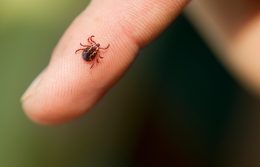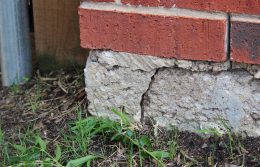How to Help Coronavirus First Responders
Texas has long been known for its neighborly attitude, so it’s no surprise that in the time of coronavirus, Texans across the state are coming up with ingenious ways to support first responders. You can, too, and you don’t even need to leave the house. In fact, it’s even better if you stay put. Here’s how to help the frontline workers battling COVID-19 while social distancing:
Make Your Own Masks
Health care workers are experiencing shortages of critical daily supplies such as hand sanitizer and disposable face masks. Instead of buying disposable masks online, you can make your own face mask out of spare cloth, bandanas, or even an old T-shirt — no sewing required. Wear your mask every time you venture out into public and then pop it into the wash after.
Donate Masks
Donating masks is a great way to support first responders. If you have a sewing machine, you can create dozens of masks to donate to health care workers in need in no time flat. Here are a few ways to donate:
- Call your area hospitals to ask if they accept homemade masks.
- Donate them through a site like Get Us PPE, which matches you with area hospitals.
- Drop them off at any Joann craft store or fill out a form to donate supplies on Texas.gov.
If you have access to a 3D printer, you can print your own National Institutes of Health-approved, open-source Maker Mask, made from commonly used 3D printable materials averaging about $2 to $3.
Fuel Frontline Workers
Support first responders with a hot meal. Healthy meals can keep frontline workers energized and sharp while they care for others. Local restaurants are hurting for business without in-restaurant dining. You can help both groups by ordering a hot meal for health care workers from local restaurants.
- Donate premade meals: Nourish bodies and minds through organizations such as Serving Up Gratitude.
- Send along a meal kit: Send food they can whip up themselves — no grocery shopping necessary — through community partnerships such as Texas Healthcare Heroes.
Give Blood and Plasma
One essential tool health care workers need to do their job that cannot be manufactured is blood. Due to blood-drive cancellations, the American Red Cross is facing a serious blood shortage. If you’re in good health and have self-isolated for at least two weeks, make an appointment today. If you believe you have been in contact with someone with COVID-19, the Red Cross is asking that donors self-isolate for 28 days before donating.
If you have fully recovered from coronavirus, your blood plasma may have antibodies that can help current COVID-19 patients. Call 1.800.RED.CROSS to find your nearest donation site.
Send Relief to Local Hospitals
Your vacations, concerts, and social gatherings may have been canceled — but the money you would have spent on those activities can still go to great use. Visit your local hospital’s website and check to see if they have a coronavirus relief fund. Many hospitals give donations straight to health care workers to ease the burden of their transportation costs, lodging, and child care during this particularly busy time.
Support the Work of Public Health Organizations
The Centers for Disease Control and Prevention provides guidelines for local health care organizations based on scientific research. You can support first responders in combatting the spread of the virus — and misinformation — by donating to the CDC Foundation, which is dedicated to keeping communities safe by making up-to-date information available and understandable to all.
Promote Your Community’s Health and Well-Being
Keeping our community happy and healthy will keep our frontline responders healthier and happier too. Volunteer or donate to nonprofits such as Meals on Wheels or to various food banks across Texas to keep more people in your community healthy and nourished at home, instead of sick at the hospital, while resources are strained.
Put Your Skills to Good Use
Consider putting your professional skills to use for volunteer organizations as well. Sites like All For Good, Catch a Fire, and Taproot will match you up with organizations seeking pro bono help from professionals with specific expertise. Before you get to work, you can vet the authenticity and rating of nonprofits on sites such as Charity Navigator.
Last but Not Least, Say Thank You
If you’re friends or family with a first responder, let them know you’re thinking of them. A simple text or chat can mean a lot. Even better, turn your gratitude practice into a family activity: Make homemade cards together, write encouraging messages in sidewalk chalk, or make yard signs out of cardboard boxes and markers. Don’t worry about finding the perfect words. All you need to say is “Thank you,” and the gesture says the rest.
Gratitude is a powerful antidote to anxiety, which many (if not all) families are feeling right about now. So do your community — and yourself — some good by passing along the positivity.
Learn how our community is finding ways to give back.
© 2020 Texas Farm Bureau Insurance



